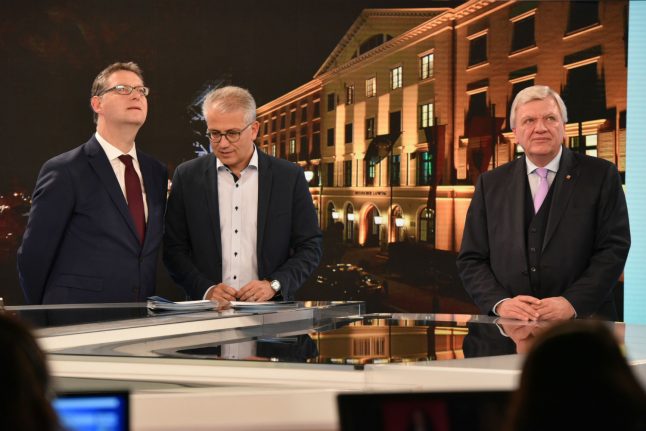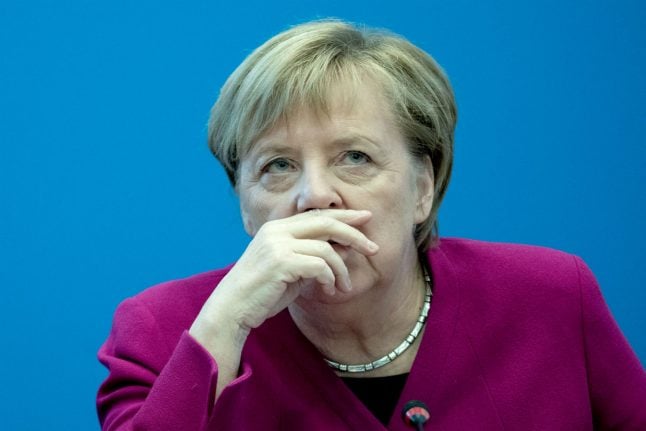After allowing more than one million migrants into Germany since 2015,
sparking a strong backlash against immigration, Merkel has been battling for
her political future.
According to an exit poll in Hesse state by public broadcaster ARD, Merkel's Christian Democratic Union (CDU) shed around 10 points for a 28-percent score, compared with 38.3 percent in 2013.
Meanwhile junior federal coalition partners the Social Democrats (SPD) tumbled almost 11 points to 20 percent.
The blow follows similar losses for Merkel's CSU sister party in Bavaria's regional poll earlier this month.
The result is another milestone in the long decline of the big-tent “people's parties” CDU and SPD that have dominated German politics for decades.
Electoral momentum is on the side of newer parties, more tightly focused on a narrow range of issues.
Propelled by the backlash to Merkel's migration policy into the federal Bundestag last year, the anti-immigrant Alternative for Germany (AfD) is now represented in all 16 of Germany's state legislatures, after Hessian voters handed it a 12-percent score.
The protest party has eaten into both the CDU and SPD vote by railing against migrants and refugees as well as uncaring Berlin elites.
The chancellor is weakened after years of battling over her 2015 open borders decision.
While migration and asylum policy has been sharply tightened since, it has not been enough to stop desertions to the AfD and disquiet in the CDU's own ranks.
Stay the course
After 13 years with Merkel at the helm, most of them in coalition with the SPD, many Germans are tired of government by carefully-crafted compromise, calling instead for clear direction on pressing policy issues like migration, security, reform of the European Union and climate change.
Nor did the veteran leader's fourth government get off to a good start after its formation earlier this year, with two rows over relatively minor points bringing it to the brink of collapse over the summer.
The SPD has suffered a string of regional defeats and last year's worst national election score since the founding of the Federal Republic in 1949.
Meanwhile, the Hessian Greens almost doubled its 2013 share of the vote that helped it into a coalition with the CDU, garnering 20 percent of the ballots.
The party attracts voters who favour welcoming refugees, worry about climate change or are fed up with the indulging of car companies during a years-long scandal over harmful emissions from diesel vehicles.
Even before the results were known, however, leading politicians in the Berlin coalition were signalling to the party rank-and-file to stay the course.
“No-one can say with 100 percent certainty how stable things will stay, what kind of dynamics will emerge” after the election, CDU general secretary Annegret Kramp-Karrenbauer said Thursday.
Seen by many as Merkel's anointed successor, Kramp-Karrenbauer cautioned
that “if the government falls apart now, it will result in new elections,” a barely concealed warning to would-be coalition breakers in both the CDU and SPD.
As to whether Merkel could be toppled, Finance minister and SPD hopeful for
chancellor Olaf Scholz said on Sunday: “I'm not Mrs Merkel's spokesman, but…
she has told the public that she was elected for the whole parliament” of four
years.
Short of an end to the coalition, internal frustration in the CDU could instead bubble up in a weak score for Merkel when she stands for re-election
as party leader in December – or even a surprise victory for a challenger.



 Please whitelist us to continue reading.
Please whitelist us to continue reading.
Member comments